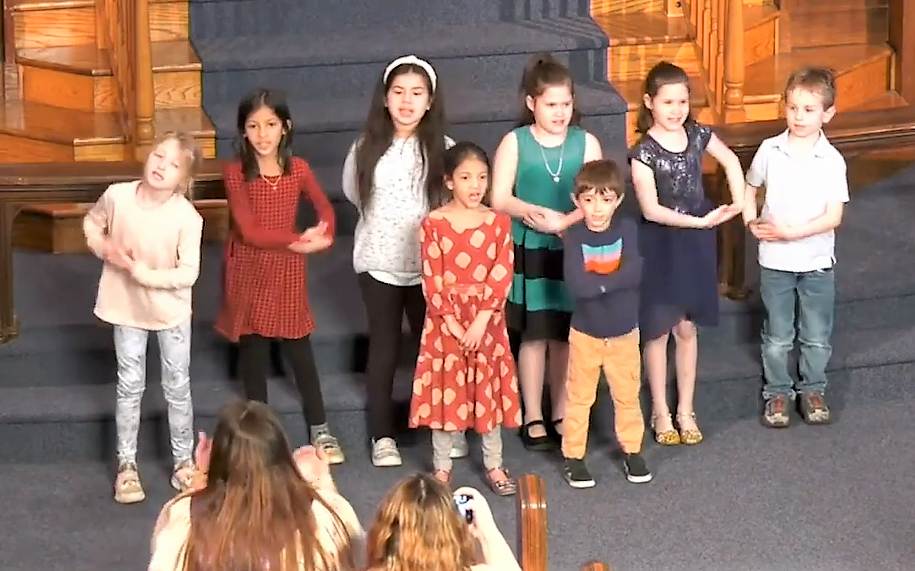Jesus said, “Let the little children come to me, and do not hinder them, for the kingdom of heaven belongs to such as these.” —Matthew 19:14
My husband and I have a small handful of parenting tenets that guide us as we raise our seven children: keep them curious, follow their curiosity, and equip them to go deeper.

Elizabeth Christie
These are kids that try to fashion water slides off the balcony of our house, turn themselves into human shrubbery so they can get birds to eat out of their hands, and lustily sing Queen songs at the top of their lungs as they race in innertubes down creeks. They’re ridiculous.
But these are also the kids that will seamlessly jump in to any congregation and serve as acolytes and liturgists. They’ll play piano and organ for entire worship services so well that they’ll make you cry. They will troubleshoot, fix and run the soundboard and livestream, and then genuinely lead a congregation in spontaneous prayer.
They know how to prepare communion, how to replace the wicks in your acolyte candlesticks (a most odious job), grab any hymnal and find a hymn that matches the lectionary and find a different setting if you don’t like that particular tune. They’ll recite just about any creed, new member liturgy, or baptismal liturgy without looking at the words.
How? They have had steady, consistent, active involvement in the life of the church. My children have been empowered, intentionally nurtured, and consistently taught how their roles as laity in the body are vital to the life of the congregation.
This is why, when I help a congregation envision their children’s ministries, I always talk about including children as worship leaders, committee members, as co-members. They need to be doing the work of the laity. We want them to know they belong. We want them to know they are integral to the body. We want them to have the space to learn this. We need their gifts and talents.
How do we meet that need?
- Ask families to sign up for a Sunday every quarter where they light the candles and do the readings. Use those terms at first. Everyone knows what those mean.
- Hold three-week classes for families to introduce them to the inner workings of bulletin folding, cleaning the pews after worship, changing paraments, cleaning communion cups, etc.
- Genuinely ask children and youth their opinions on certain matters that you discuss in your meetings. Bonus points if you offer Zoom links to these meetings, so they can join in from where they live.
- Let them be kids and be as comfortable in the church building as they are at home. Let the kids take running leaps and slide down the pews. Let them roll down the center aisle. Let them wander around the sanctuary after the service ends, when the lights are out, finding all the nifty nooks and crannies. (Yes, keep an eye on them.)
- Have some liturgy that repeats for a while so that people easily learn it. Then ask a family or child to lead it.
- Soundboard and livestream jobs are loved by many children and youth; and they’re good at it.
- Ask children to help with the offering and prayer.
- Have children place and collect completed prayer cards.
- Have a “battle of the preachers.” Give the kids a topic, set them in teams at two lecterns, and let them see what stories they can tell that relates to the given Scripture. Bonus points if you have stoles and robes for them to wear.
- Include them in budget conversations. Have them help you write a narrative budget.
- Organize prayers of the people in a pattern, and have the children lead the patterned response. They will grow more comfortable with leading corporate prayer.
- Don’t call them cute. Don’t take photos. Don’t do anything you wouldn’t do to an adult.
Elizabeth Christie has directed and shared her expertise in children’s ministries at several churches and with our conference.

